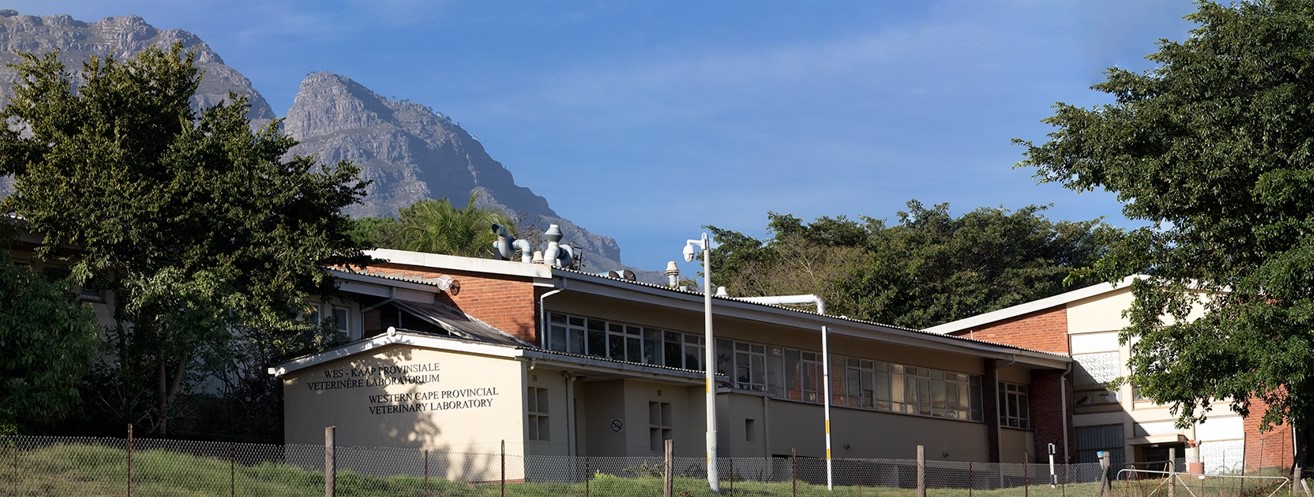The Department of Agriculture’s provincial veterinary laboratory (PVL) at Helderfontein in Stellenbosch will be undergoing major renovations during the next 12 months, during which the facility will be closed.
The building, which was completed in May 1972, needs extensive renovations to bring it up to standard.
The Department of Transport and Public Works is funding the R23 million project to upgrade the building.
According to Francois Dreyer, Technical Manager for Veterinary Diagnostic Services, Bovine brucellosis testing makes up 85% of the testing performed by the Laboratory.
“During the renovation period, an accredited veterinary laboratory will perform free testing of samples for clients within the Western Cape,” Dreyer said. “The Western Cape Provincial Veterinary Laboratory will cover the costs. The value of the testing performed during the renovation is estimated at R2,2 million.”
Veterinary services
Clients are based in all provinces and up to about 60% of the samples received are from other provinces.
Testing focuses on disease diagnosis, surveillance, and monitoring of the livestock, poultry, ostrich, and aquaculture industries. The main scope is testing for notifiable animal diseases, including Brucellosis, Avian Influenza, Newcastle Diseases, African Horse Sickness and Salmonella spp. Detection. It is accredited for testing food, meat, animal feed, and water samples.
A wide range of tests in diagnostic bacteriology, serology, parasitology, virology, histology, polymerase chain reaction (PCR) and biochemistry sections are conducted at the laboratory. Samples of meat, water, animal feed and swabs are received for hygiene monitoring for veterinary public health and food safety testing.
The national requirement for all laboratories testing for controlled and notifiable animal diseases is that the laboratory is ISO 17025 accredited as well as DALRRD: DAH (Animal Health) approved.
Extensive maintenance
The fifty-year-old building requires extensive maintenance. Over the years, building codes, regulations and requirements have changed and the building needs to be upgraded as routine maintenance cannot address all the challenges and building compliance.
The construction project will address three issues, namely:
Maintenance
Maintenance issues, including the sagging and cracking of floors and walls of some rooms due to the clayey soil on which the foundations were laid. Some floors will have to be reconstructed.
Electrical compliance needs to be upgraded to cope with the increase in equipment and to connect the equipment to the computer network.
Taps, work benches and lighting in the lab areas must be upgraded.
General renovation
General renovation, including painting, cleaning and repairs to floors, the upgrade of the office areas, construction of a new staff room, renovations of ablution facilities and repairs to plumbing and sewerage systems.
The sample reception office must be enlarged. The water supply system must be redesigned and constructed.
Repairs will also be done to the poultry housing chickens that serve as donors of eggs and blood used in testing activities to ensure the flock is better managed and free from disease.
Occupational health and safety, accessibility upgrades
Renovations must include upgrades to accommodate occupational health and safety, as well as the accessibility of staff and visitors with mobility issues. This will include removing the asbestos o the property, electrical upgrades and installation of a new distribution board, replacement of electrical wiring and rerouting of electrical wiring to ensure balanced loads.
As the windows in some areas may not be opened and air conditioning runs all day, a system must be installed to supply fresh air to all the areas of the laboratory.
A fire detection and suppression system must be installed, as well as additional ablution facilities for persons with disabilities and a wheelchair-accessible elevator.
The project will be done in three phases, but some of the phases will also be done concurrently. Phase 1 commenced on 7 November and will focus on the outer buildings, Phase 2 will focus mainly on the lab areas, and Phase 3 will include the administrative and other office areas.
It is envisioned that the laboratory will be fully functional again as an ISO 17025-accredited laboratory at the end of November 2023.
For alternative facilities that may be used for the client’s own account, contact Francois Dreyer, Veterinary Laboratory Services at Francois.Dreyer@westerncape.gov.za; Tel: 021 808 7512; www.elsenburg.com; www.westerncape.gov.za
References
Veterinary Laboratory Services. Western Cape Government. Available at: https://www.elsenburg.com/veterinary-services/veterinary-laboratory-services/









